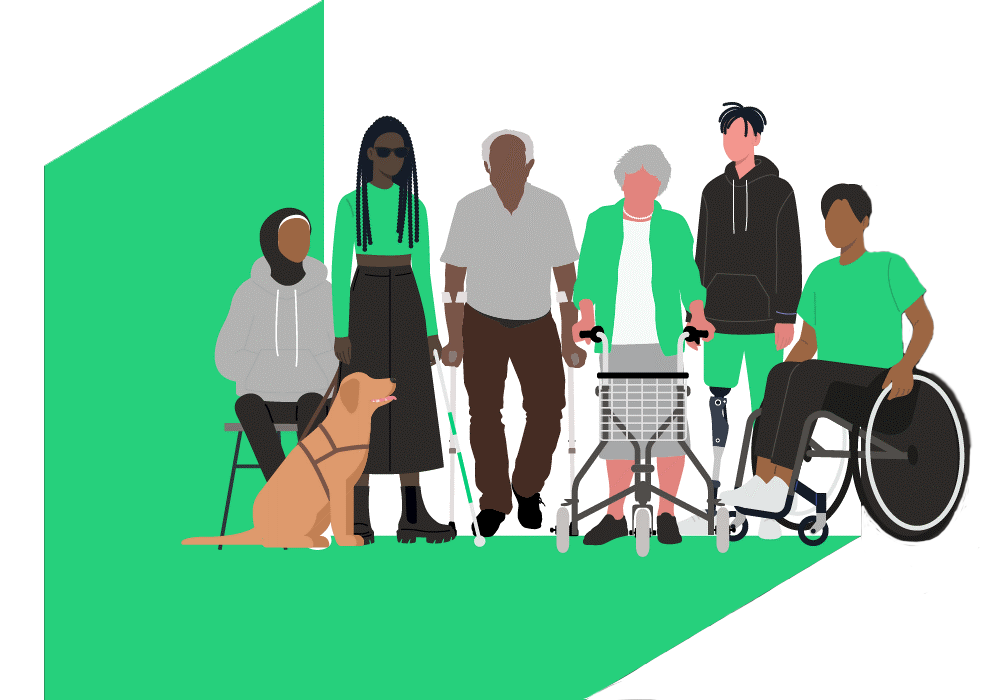
Disability Awareness Toolkit
Disability Awareness Toolkit
Toolkit collated by Chloe Johnson
What is Disability and Why Do We Need Disability Awareness?
To understand why we need Disability awareness, we must first look at how we understand disability.
A Disability is defined by the Equality Act 2010 a “a physical or mental impairment that has a ‘substantial’ and ‘long-term’ negative effect on your ability to do normal daily activities.” however the current disability movement suggests that it is society’s reaction to an impairment that forms a barrier, rather than the impairment itself, that is disabling.
- Lupus
- Cerebral Palsy
- Multiple Sclerosis
- Limb Difference
- Major Depressive Disorder
Not everyone with an impairment will necessarily identify as Disabled, and disabilities are not always visible or physical.
A disability can be viewed in a variety of ways. An outdated way to view disability is by the Medical Model, whereby disabilities are viewed as something to be fixed or cured, and places the responsibility of this on the Disabled person. The Social Model of Disability has been developed by Disabled people as a way to combat this model, and is a popular way of viewing disability. Though it is very popular, it is not the only way to view disability, and not everyone uses it.
Scope, a charity in the UK, defines the Social Model as:
“The model says that people are disabled by barriers in society, not by their impairment or difference. Barriers can be physical, like buildings not having accessible toilets. Or they can be caused by people’s attitudes to difference, like assuming disabled people can’t do certain things. The social model helps us recognise barriers that make life harder for disabled people. Removing these barriers creates equality and offers disabled people more independence, choice and control. Not everyone uses the social model and that’s ok. How anyone chooses to talk about their impairment is up to them.”
A disability can therefore, by the Social Model, be seen as having an impairment which society places barriers against. An example of the Social Model in action would be if a wheelchair user can not access a shop due to steps, suggesting putting in a ramp to combat the problem with the building, not the person. However, this model does not work for everyone and is not prescriptive. Those with chronic illnesses, for example, may not necessarily relate to this model. However, we can acknowledge that it is one way in which we can view disability that many Disabled people find helpful to combat ableism, prejudice and negative opinions.
The most important thing to note about disability awareness is that every disability experience is different and unique: what works for one Disabled person is not prescriptive for all Disabled people.
The Diverse Educators’ Disability Awareness Toolkit
- What is meant by disability?
- What are my preconceptions about disability and disabled people?
- What is the difference between disability awareness and disability rights?
- Why is disability awareness important for non-disabled people?
- Why do we still need disability awareness?

